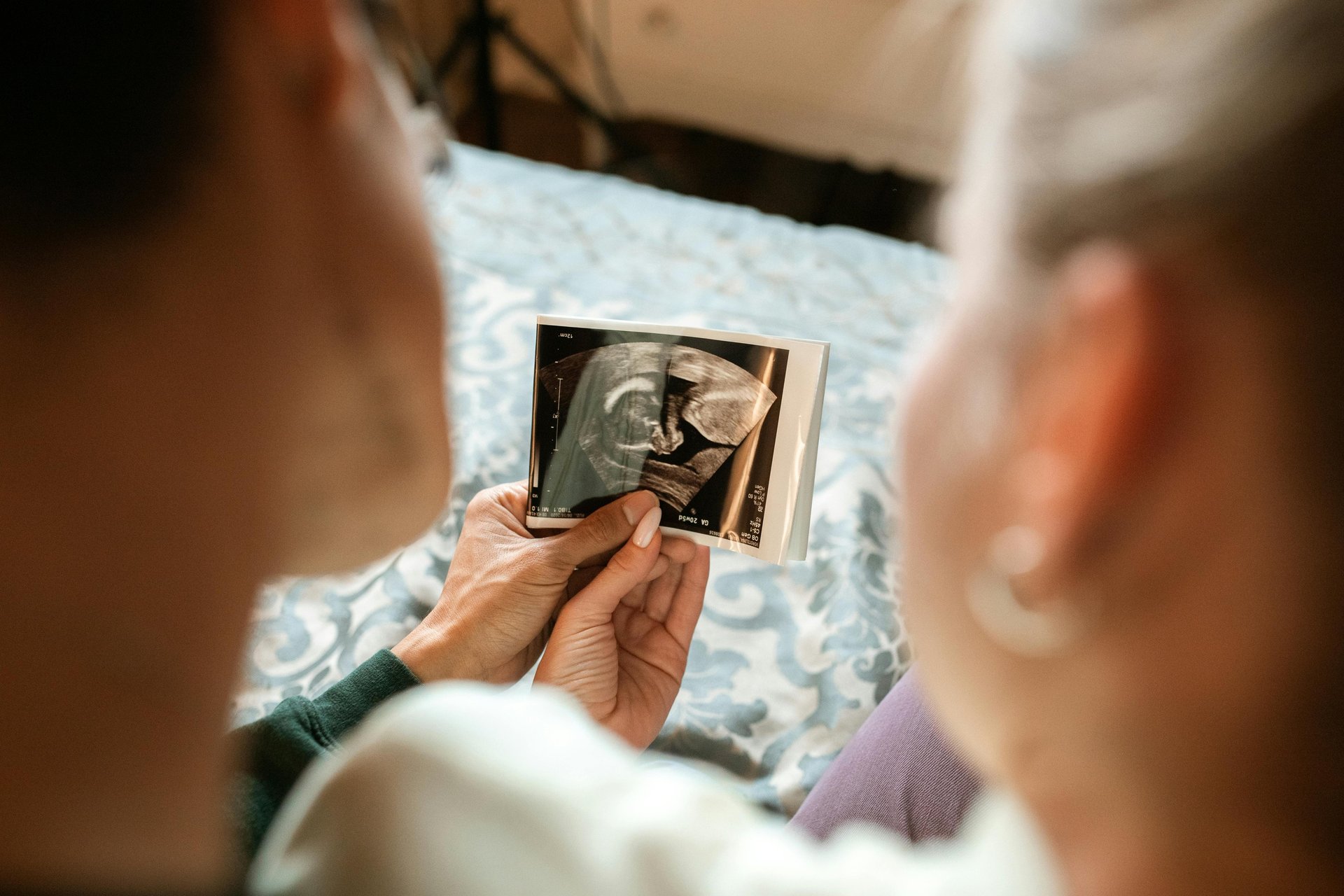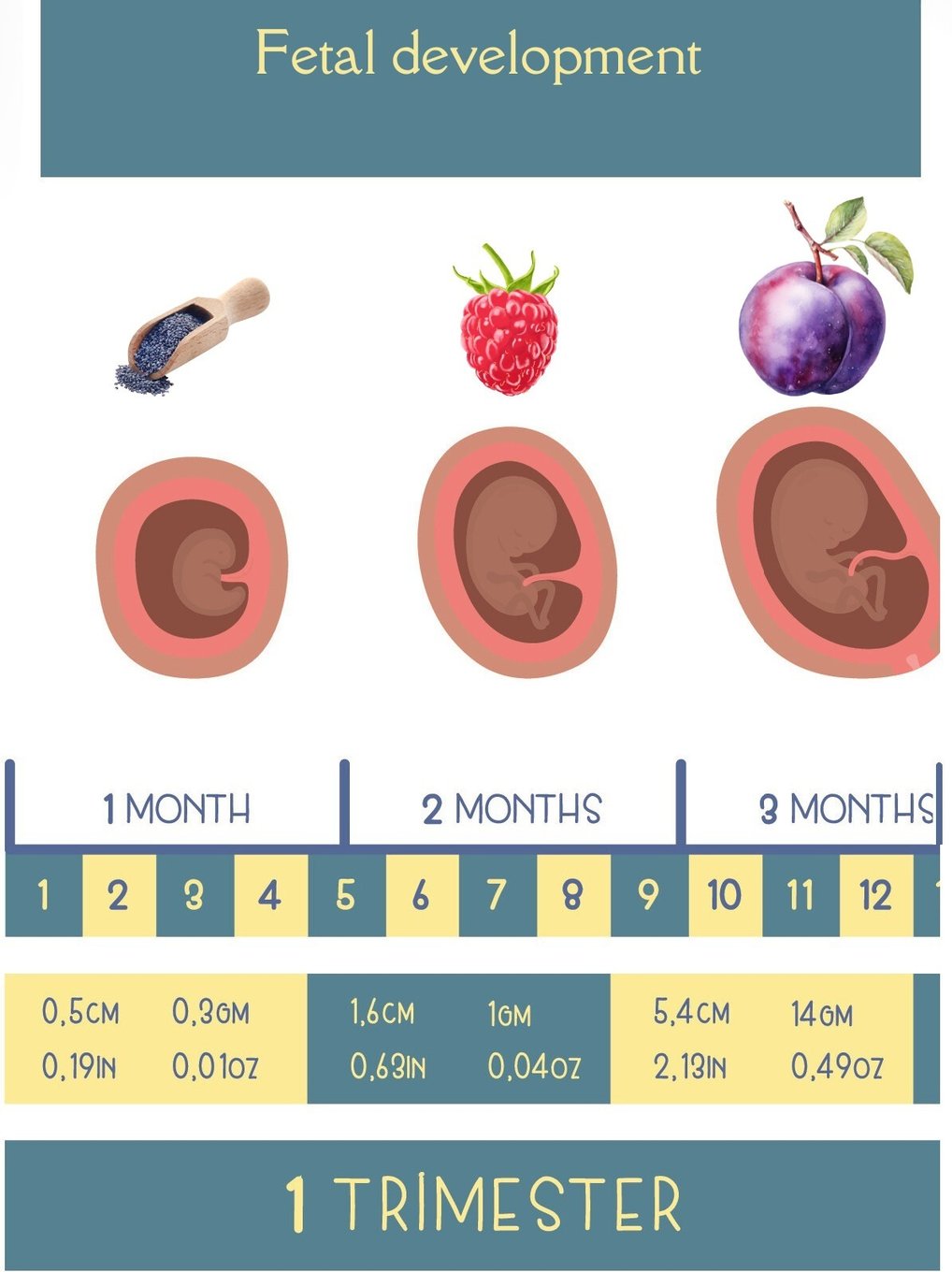
First Trimester of Pregnancy: Your Complete Guide to Changes, Symptoms, and Fetal Development
The first trimester of pregnancy is a critical period full of changes. Discover everything you need to know about early symptoms, fetal development, and essential tips for a healthy pregnancy journey.
PREGNANCY
Nifas
12/16/2024


The first trimester of pregnancy is a crucial phase, marked by significant physical and emotional changes for the mother. These changes include noticeable physical symptoms such as nausea, sensitivity to smells, and fatigue. Meanwhile, the fetus begins forming its essential organs and physical structure. This period requires special attention from the mother to ensure healthy fetal growth and maintain her well-being.
In this article, we will highlight what happens during the first trimester of pregnancy, including the physical, emotional, and social changes a mother may experience and how to manage them.
Beginning of the Pregnancy Journey: What is the First Trimester?
Pregnancy is divided into three stages known as the first, second, and third trimesters, each lasting about 13 weeks or approximately three months. A full-term pregnancy lasts around 40 weeks or between nine to ten months. Fetal development is typically assessed weekly, with the first trimester extending up to the 13th week.
Pregnancy technically begins on the first day of a woman's last menstrual period, known as the gestational age. When calculating the expected delivery date, 40 weeks are added to this day. Thus, when a woman discovers she is pregnant, she is already about four weeks along, which can be confusing. Dividing pregnancy into three stages helps understand the changes occurring in both the woman and the fetus throughout this period.
Changes in the First Trimester of Pregnancy
During the first trimester, women experience numerous physical, emotional, and social changes that require adaptation and support. Key physical changes include:
Major Physical Changes in the First Trimester
Early pregnancy signs often manifest as mood swings, morning sickness, and increased breast sensitivity, which are common symptoms. The woman's body undergoes significant physical changes to support and protect the growing fetus. Hormones are released intensely, impacting nearly all body systems. Some women may notice breast gland enlargement, leading to increased breast size and sensitivity due to higher estrogen and progesterone levels. Wearing a supportive bra is recommended to alleviate discomfort.
Morning sickness is one of the most common symptoms in the first trimester, caused by elevated levels of the hormone human chorionic gonadotropin (hCG). This nausea can persist throughout the day, not just in the morning. Although it can be bothersome, morning sickness usually does not significantly affect the mother's or fetus's nutrition.
Additionally, the uterus begins to grow gradually, pressing on the bladder, increasing the need to urinate frequently. The pressure from the growing uterus also affects the rectum and intestines, potentially leading to constipation. Many women experience heartburn, indigestion, and increased gas during this period.
Pregnancy increases blood volume by 40% to 50%, enhancing blood flow and circulation. This results in an increased heart rate during pregnancy, a necessary change to ensure adequate nutrient and oxygen delivery to the fetus.
Emotional and Psychological Changes in Early Pregnancy: How to Cope?
Hormonal changes during the first trimester can cause mood swings similar to those before menstruation, including feelings of anxiety, stress, or even crying without a clear reason. These changes vary among women; some may experience intense mood swings, while others may find them less noticeable.
Severe fatigue is common due to the physical and emotional demands pregnancy places on a woman's body. Therefore, women may need additional rest and sleep to combat this fatigue.
Social Changes for Pregnant Women and the Importance of Family Support in the First Trimester
Pregnant women face social changes during the first trimester, potentially encountering new challenges in relationships with partners, family, and friends, especially with early pregnancy symptoms. This period may require extra support from partners and those around the pregnant woman to adapt to the new changes.
Some women may feel the need to reduce their participation in social activities or work due to fatigue or physical symptoms. Conversely, they may seek connection with other women who have experienced pregnancy for psychological support and experience sharing.
Fetal Development in the First Trimester: Week-by-Week Growth Stages


During the first trimester, the fetus undergoes several crucial developmental stages that determine its growth path. Fetal development in the early months is rapid, with the formation of vital organs like the heart and lungs. These stages, from the first to the twelfth week, are divided as follows:
Weeks 1 to 4: Early Fetal Formation and Initial Changes
Basic structures begin forming in the early weeks of pregnancy, which will support the fetus throughout its growth. A small cluster of cells develops into the fetus's body and brain, with circles indicating eye locations and the beginning of mouth formation. Despite these important developments, the fetus remains very small, smaller than a grain of rice.
Weeks 5 to 8: Development of the Heart and Vital Organs
During this period, the fetus starts developing its major organs. The heart, lungs, and ears appear, and the arms and legs begin forming. Bones start to form, and the fetus's head is relatively large compared to the rest of its body, with human features like the mouth and nose beginning to shape. By the end of the eighth week, the fetus is about the size of a berry.
Weeks 9 to 12: Completion of Growth and Fetal Movement Development
In the final weeks of the first trimester, the fetus gains more detailed features, with fingers and toes forming, nails appearing, and simple movements like opening and closing hands and mouth beginning. The urinary and digestive systems also develop and become functional. By the twelfth week, doctors can listen to the fetal heartbeat. At this stage, the genital organs start to appear, though they are not yet distinguishable. The fetus's length and size increase to about the size of a plum by the end of this stage.
Nifas Advice
The first trimester of pregnancy is a critical period filled with physical and emotional changes that may leave the mother feeling exhausted or anxious. However, understanding these changes helps better adapt to them. Tips for the first trimester include getting enough rest and listening to your body, taking extra breaks to cope with increasing fatigue.
Proper nutrition is also advised, focusing on a balanced diet rich in vitamins and minerals to support fetal growth. Regular medical check-ups are crucial for early detection of any changes and to provide necessary guidance for a healthy pregnancy.
Remember, despite its challenges, this stage marks the beginning of a new life; prepare for the next two trimesters by taking care of yourself and listening to your body.
Frequently Asked Questions (FAQs)
Contact Us


Tahlia Street, Abdul Latif Building, Opposite Karam Beirut Restaurant, First Floor, Office 101 Riyadh, Kingdom of Saudi Arabia
info@nifas.net
Our Address
Follow Us
